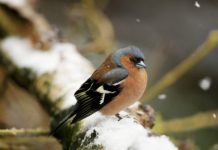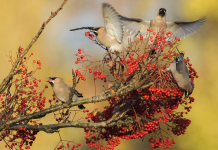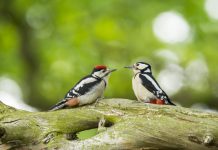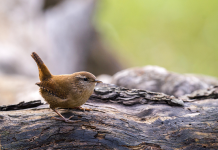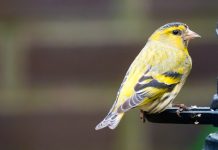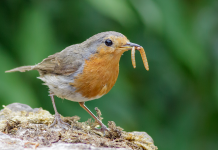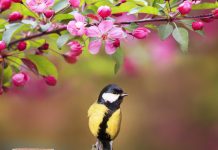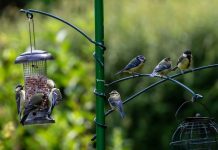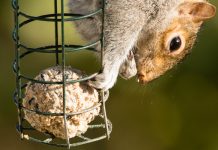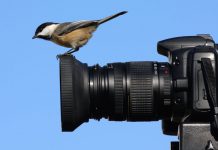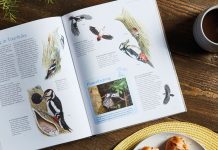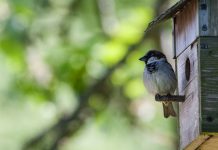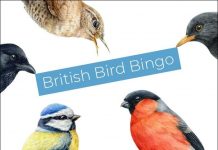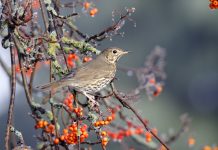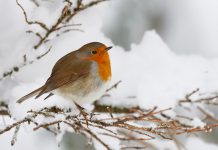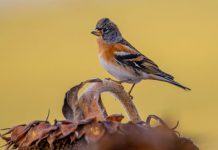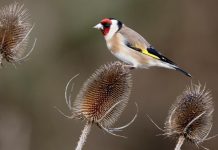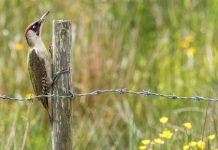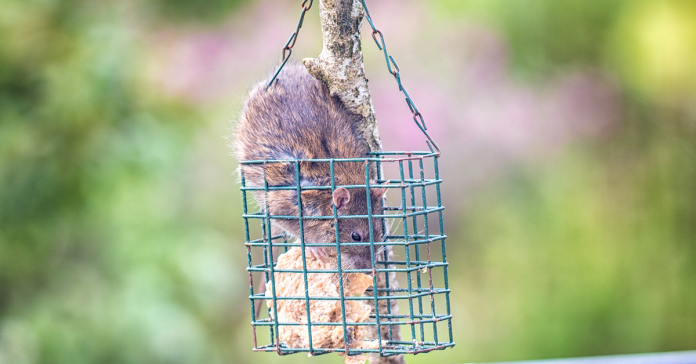Picture the scene: you’ve put out all this lovely food to attract garden birds to your feeders, to give nature a helping hand. But it’s not goldfinches or sparrows that you spy through your garden window – it’s a rat that has scaled your feeders to help itself to all those nutritious goodies. Or perhaps you’ve seen them scurrying along your patio, helping themselves to the seed your feathered friends have dropped. Not exactly the visitor you were hoping for!
No matter your opinion of those furry little chaps and their mice cousins, it’s not pleasant to see them chomping away at the feed you’ve left for the birds. Here are our top tips to discourage those rascals from making themselves at home in your garden…
Why should you deter rats?
Wild mice and rats are notorious for carrying diseases. The problem lies in the faeces and urine that they leave on feeders, which will be problematic for visiting birds.
Rodents are after an easy meal, so the lovely feed you’ve left out for the garden birds is a welcoming all-you-can-eat buffet. They are creatures of habit and won’t wander too far from a reliable food source. If you spy these furry fiends, avoid filling up your feeders for a few days so that they move on elsewhere. By eliminating their food source they are less likely to stick around!
Hygiene is important
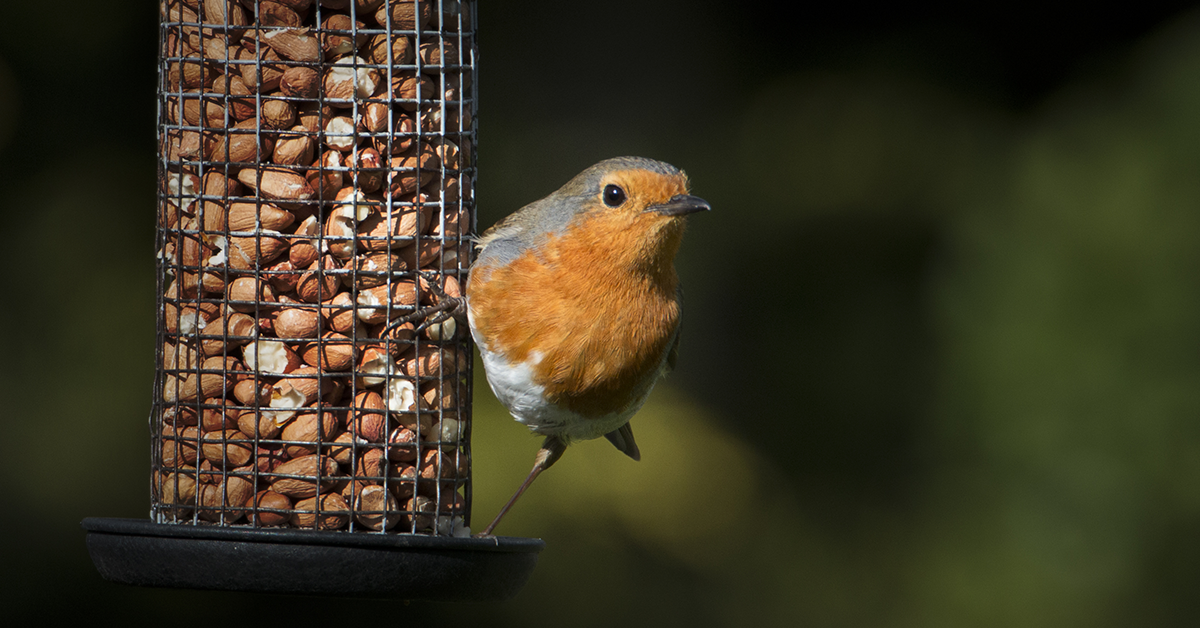
Source: Getty images.
Good bird feeding hygiene won’t just deter rodents; it helps prevent the spread of nasty diseases which will harm the birds. If you’re already incorporating good hygiene into your feeding routine, the best thing you can do is to remember to clean feeders regularly, and to wear gloves whenever you handle anything so as to protect yourself.
If you’re making sure the feeders themselves are clean, don’t forget about the ground underneath them. Make sure that you sweep up any fallen feed as the rats will love to munch on any leftovers. Try laying down sheets of newspaper to catch any fallen seed and droppings; you can change this nightly to deprive rats of their midnight feast. Opt for a feeder with a seed tray to prevent any unwanted debris.
Limit the buffet
Rats and mice prefer to go for an easy meal. By making it more difficult for them to access food, they will move elsewhere for easier pickings. Rats are nocturnal, so will come out at night to feed. Try filling up your feeders in the morning and only put out as much food as the birds will eat in a day – this way, there won’t be any leftovers for rodents to eat.
If you’ve noticed any unwanted visitors in your garden try removing your feeders for a few days. This should deter any rats from hanging around – you’ll want to make sure that any holes into your house are blocked up to stop them moving in, as well as limiting access to your compost bin where they could nest. Ensure that you store all of your feed in an airtight container.
When it comes time to put your feeders back out again, think about where you’re going to place them. Rodents will like shadier, grassier, leafier parts of your garden as it gives them cover from predators when they’re scurrying around. Try placing your feeders out in the open as they won’t be brave enough to venture out from the undergrowth.
Do away with any ground feeders and opt for a bird feeding station; rats will have difficulty climbing the metal pole. You can make it even more difficult by greasing the pole, or adding a baffle guard. A squirrel proof feeder will also go a long way to preventing the furry fiends from helping themselves to your feed.
What feed?
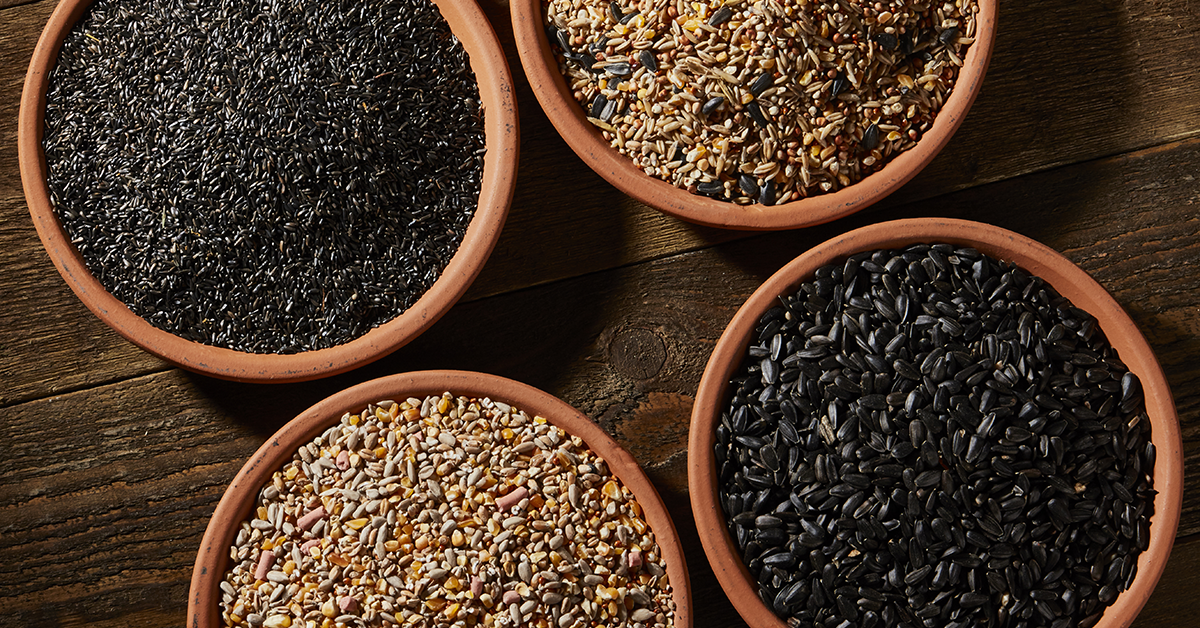
Source: Happy Beaks.
One of the most effective ways to deter rats from your feeders is to be selective about what food you put on offer. A no mess seed with the husks removed means less waste on the ground, which means less food for those unwanted visitors. Avoid ground feeders and food; this will limit the variety of birds you’ll see, but it will also leave less appealing options for rats, which will be worth it in the long run.
Rats and squirrels detest niger seed; this tiny seed is so small, that the pesky mammals can’t get a yummy meal out of them. They are loved by goldfinches though, who will be all too happy to help themselves! You could also try adding chilli flakes or cayenne pepper to your feed. This won’t affect the birds in any way as they won’t be able to taste the spice, but it will be very off putting for squirrels and rats.
Before you go…
As frustrating as those furry fiends can be, don’t be tempted to put down rat poison. Rats tend to nibble on a small portion of a food supply first to make sure that it’s safe – poison will just mean you’ve condemned an animal to a slow, painful death elsewhere. The rat carcass could then be eaten by your cat or dog, or a bird of prey, making them ill as the poison goes up the food chain. Other garden birds could help themselves to the poison too.
If your rat infestation is really that bad that you would consider using poison, your best bet would be to contact your local exterminator who can help rid you of the problem in a much more humane way.
Have you got any tips for deterring mice and rats? Let us know on our Facebook page!


